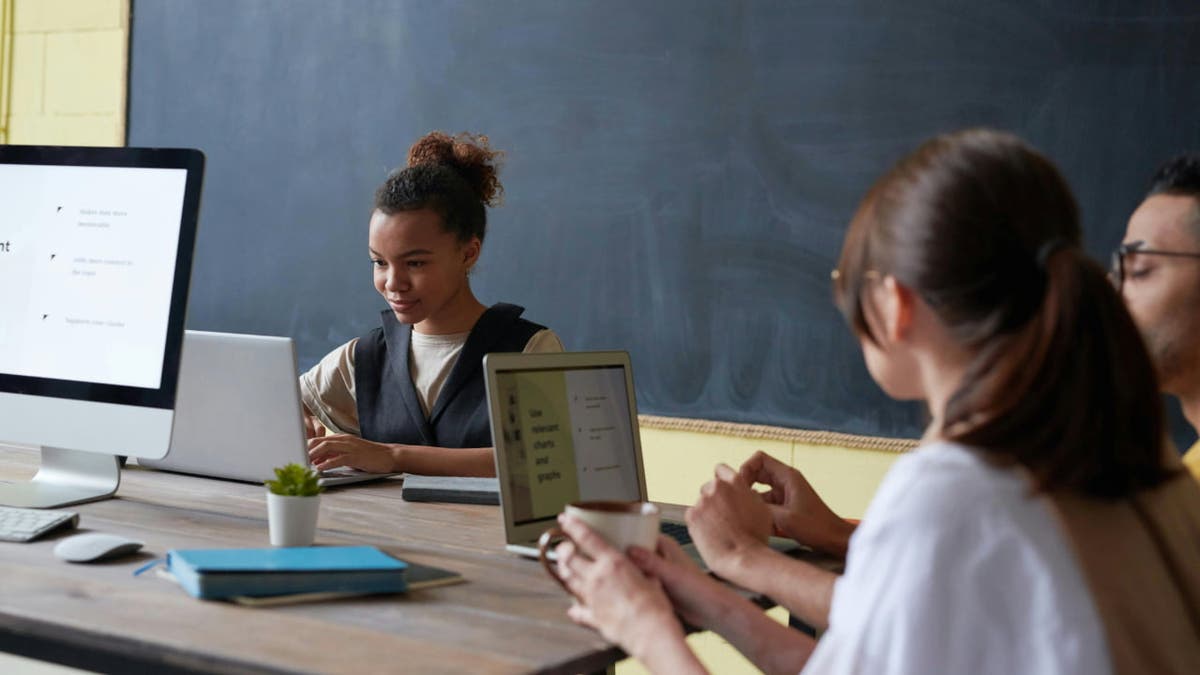Best back-to-school tech for student’s success
The 'CyberGuy’ Kurt Knutsson joins ‘Fox & Friends Weekend’ to discuss the best gear students from kindergarten and beyond need for the 2024-2025 school year.
This might come as a surprise, but schools collect a significant amount of data about students, often for administrative purposes or through the use of learning apps and school-issued devices. As the new school year begins, it's crucial to be aware of how this data is managed and protected.
During the back-to-school period, when educational institutions ramp up their use of technology, the risk of data breaches increases. If unauthorized parties, such as marketers or threat actors, gain access to this data, it could be used to create customer profiles for targeted ads or, in more severe cases, identity theft.
Let's explore the often-overlooked dangers associated with school technology, and I'll provide preventive measures to help protect your child's data as they return to school.
GET SECURITY ALERTS, EXPERT TIPS — SIGN UP FOR KURT’S NEWSLETTER — THE CYBERGUY REPORT HERE

A child and parent working on a computer. (Kurt "CyberGuy" Knutsson)
Understanding school technology
Most schools use apps, devices and management software to make learning easier for your kids. There’s no denying that technology has made schools more efficient and learning more accessible. But, like with everything good, school tech also has its downsides.
Classroom management apps are widely used to track academic performance, while some learning apps also monitor engagement. These apps are intended for educational purposes, but some still share tracked data with third parties, such as advertisers.
Legal protections: COPPA and FERPA explained
The Children's Online Privacy Protection Act (COPPA) requires these apps and websites to obtain parental consent before collecting information from children younger than 13. However, schools can grant COPPA consent on behalf of parents if a service is used solely for educational purposes.
Also, under the Family Educational Rights and Privacy Act (FERPA), public schools can share information like your child's name, address, date of birth, attendance and any honors or awards with third parties without needing parental consent.
HOW TO REMOVE YOUR PRIVATE DATA FROM THE INTERNET
Risks of school-issued devices
Another potential risk involves school-issued devices. Many schools provide tablets or laptops to students, but these devices can easily be targeted by hackers. Hackers can misuse privacy settings, such as location and browser tracking.
If your child uses a school device to post on social media, threat actors could use that information to target them. Even with stringent privacy settings, there’s no guarantee that their posts won’t be seen by the wrong people.

A student working on her laptop. (Kurt "CyberGuy" Knutsson)
MUST-HAVE BACK-TO-SCHOOL PRODUCTS FOR EVERY STUDENT
Teach your child about the dangers online
Kids today are spending more time online than ever before, and it's important to teach them that the internet isn't always a safe place. Talk to your kids about the dangers of interacting with strangers online. Just because someone has a social media account or email doesn't mean they're who they say they are.
Pay close attention to your child's social media. This means setting clear rules about who they can talk to online. Make sure you have access to their accounts and know their usernames and email addresses.

Students in a classroom working on their laptops. (Kurt "CyberGuy" Knutsson)
BEST BACK-TO-SCHOOL LAPTOP DEALS
4 ways to protect your child from the dangers of school tech
Below are four steps that you can follow to keep your child's personal data secure.
1. Let schools know your privacy preference: At the start of the year, schools often provide privacy options. If you prefer not to have your child's data shared with third parties, be sure to communicate that. You can opt out by notifying the school not to share your child's directory information. If you don't receive a form for this at the beginning of the year, contact the school administrator to request your child’s removal from the directory.
2. Check the school apps: Schools often require your child to use various apps, some for learning and others for tracking. However, it's important to ensure these apps are trustworthy and aren't requesting unnecessary device permissions. Be cautious of apps that ask for location access or track browsing activities, as these could pose privacy risks. Take the time to review each app’s permissions and privacy policies to protect your child’s data. Get my picks for the top 4 child monitoring programs of 2024.
GET FOX BUSINESS ON THE GO BY CLICKING HERE
3. Monitor school-issued devices: It’s important to know what apps and services they’re accessing on the device. If the device has a camera, consider putting a piece of masking tape or a webcam cover over the lens when it’s not in use. This simple step helps ensure that no unwanted apps or threat actors can use the camera to monitor your child. It’s a quick and effective way to block any potential prying eyes.
4. Beware of back-to-school shopping scams: Hackers are attempting to scam back-to-school shoppers by tricking them into clicking malicious links. Between May and mid-July of this year, the McAfee Labs team identified nearly 6,000 suspicious or malicious links that directed back-to-school online shoppers to inappropriate or torrent sites.
According to the data, McAfee has observed a 380% year-over-year increase in suspicious links targeting consumers doing their back-to-school shopping online, along with a 6% year-over-year rise in unsolicited emails related to the back-to-school season.
The best way to protect yourself from clicking malicious links that install malware is to have strong antivirus protection installed on all your devices. Get my picks for the best 2024 antivirus protection winners for your Windows, Mac, Android and iOS devices.
5 EXPERT HACKS TO SAVE ON BACK-TO-SCHOOL ESSENTIALS
Kurt’s key takeaway
As schools increasingly use technology in the classroom, it's important to understand how your child's data is being collected and used. While educational apps and school-issued devices offer many benefits, they also pose risks that are often overlooked. Sharing student data with third parties and the possibility of cyberattacks on school devices are major concerns.
CLICK HERE TO GET THE FOX NEWS APP
Have you ever reviewed the privacy policies of the apps or software your child's school uses? What did you find? Let us know by writing us at Cyberguy.com/Contact
For more of my tech tips and security alerts, subscribe to my free CyberGuy Report Newsletter by heading to Cyberguy.com/Newsletter
Ask Kurt a question or let us know what stories you'd like us to cover.
Follow Kurt on his social channels:
Answers to the most-asked CyberGuy questions:
- What is the best way to protect your Mac, Windows, iPhone and Android devices from getting hacked?
- What is the best way to stay private, secure and anonymous while browsing the web?
- How can I get rid of robocalls with apps and data removal services?
- How do I remove my private data from the internet?
Copyright 2024 CyberGuy.com. All rights reserved









































